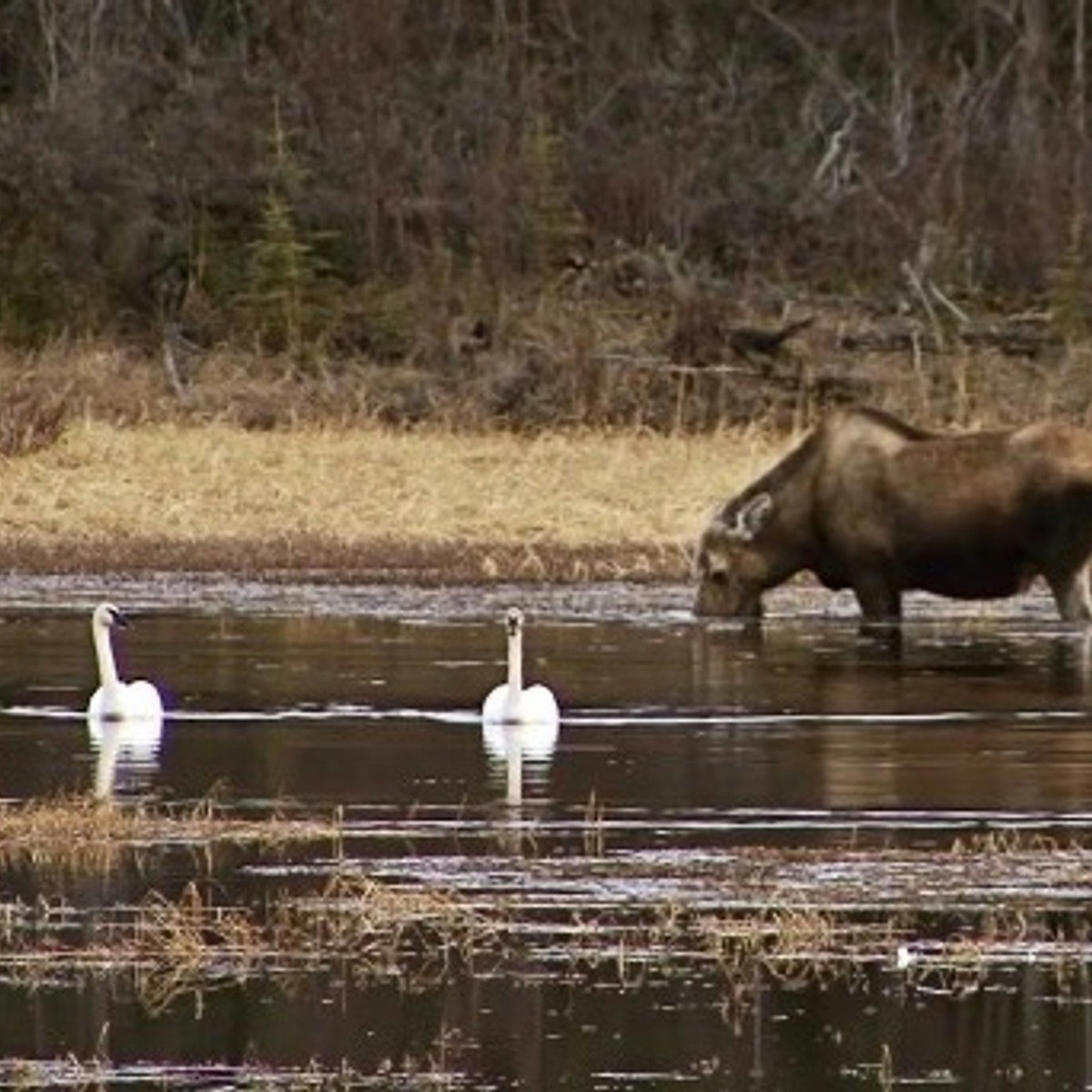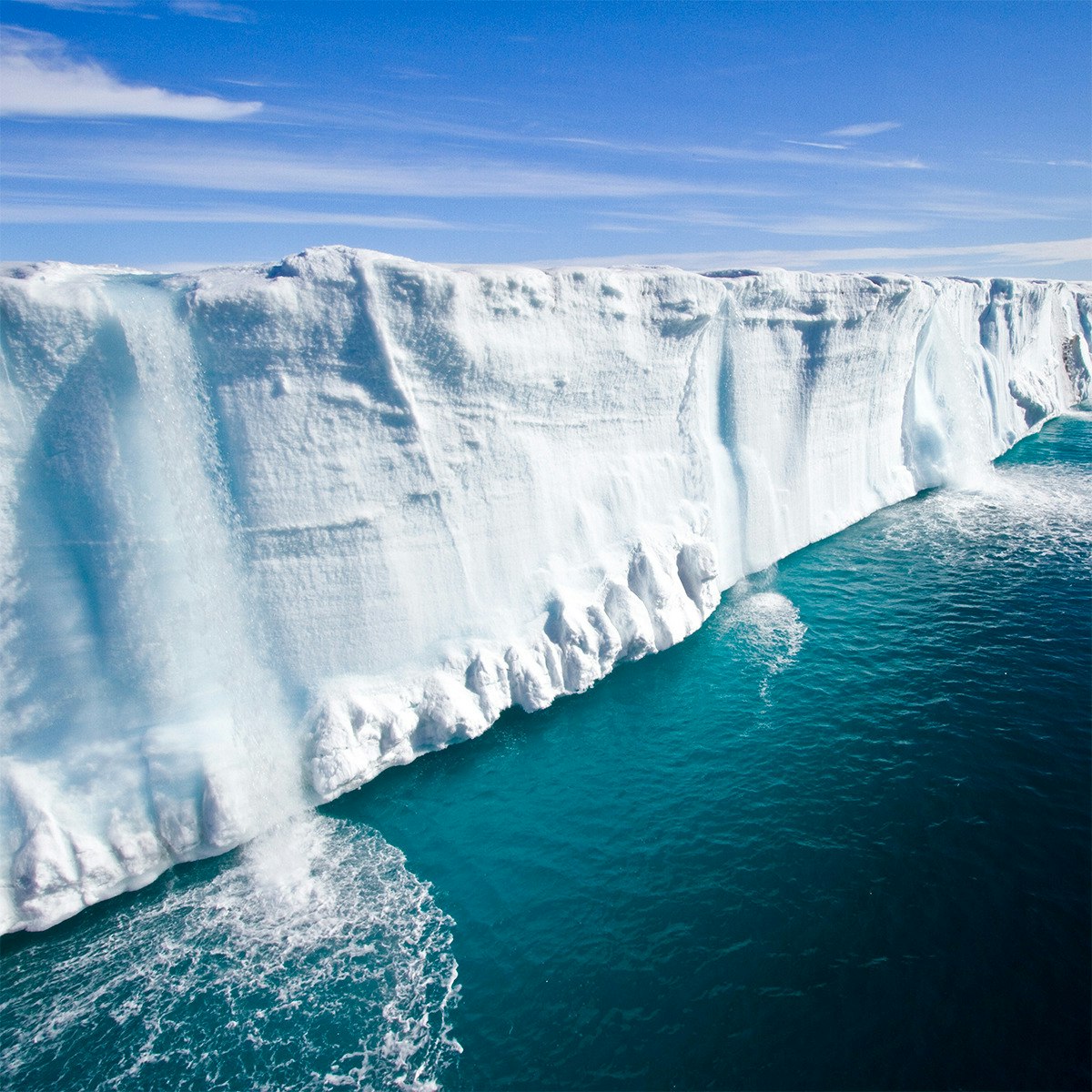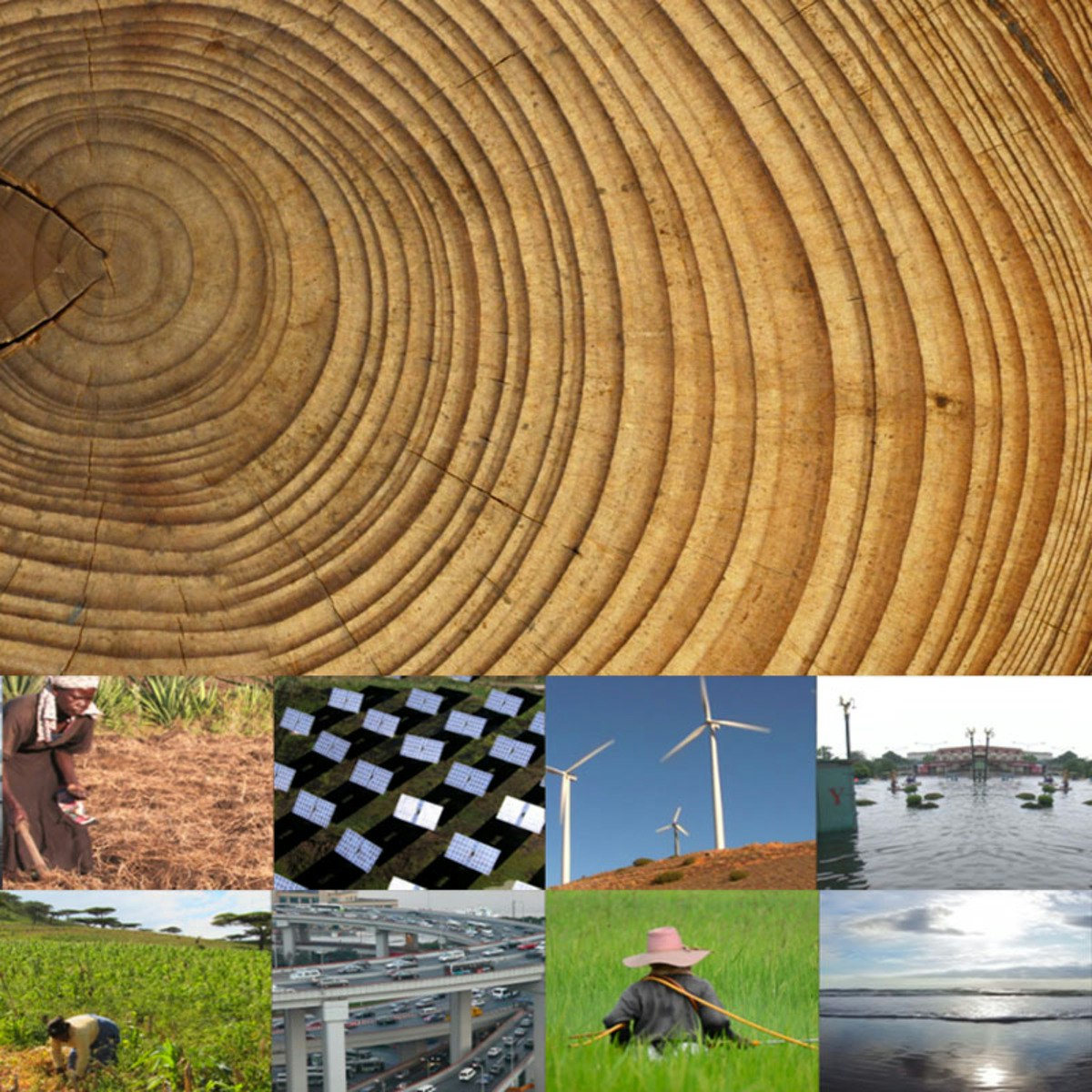Environmental Policy Analyst
Environmental Policy Analyst: Shaping a Sustainable Future
An Environmental Policy Analyst plays a crucial role in navigating the complex intersection of human activity and the natural world. They research, analyze, and develop policies aimed at protecting the environment, managing natural resources, and promoting sustainability. This involves examining environmental issues, evaluating potential solutions, and advising policymakers, organizations, or the public on the best courses of action.
Working in this field can be deeply rewarding. Analysts often tackle pressing global challenges like climate change, biodiversity loss, and pollution. They contribute to crafting regulations that shape how industries operate, how governments manage public lands, and how communities strive for a healthier environment. The interdisciplinary nature of the work, blending science, economics, law, and politics, offers continuous intellectual stimulation.
Introduction to Environmental Policy Analysis
Environmental Policy Analysis is fundamentally about understanding environmental problems and designing effective governmental or organizational responses. It draws upon various disciplines to assess the impacts of human actions and to formulate strategies for mitigation and adaptation.
Definition and Scope
At its core, environmental policy analysis involves the systematic evaluation of policy options designed to address environmental challenges. Analysts investigate the causes and consequences of environmental problems, such as air and water pollution, deforestation, or species extinction. They use qualitative and quantitative methods to compare the potential effectiveness, efficiency, and equity of different policy instruments, like regulations, taxes, subsidies, or information campaigns.
The scope is broad, covering local issues like waste management in a city, national regulations concerning clean air standards, and international agreements on climate change. Analysts work on diverse topics including conservation, energy policy, sustainable agriculture, urban planning, and resource management. Their goal is to provide evidence-based recommendations to decision-makers.
This field requires a blend of analytical rigor and practical understanding. It involves not just understanding the science behind environmental issues, but also the economic costs and benefits of policies, the legal frameworks governing them, and the political feasibility of implementation.
To grasp the foundational concepts of environmental science that underpin policy decisions, consider exploring introductory courses.
Understanding the broader context of environmental policy often involves looking at foundational texts that shaped the field.
Historical Evolution
The field of environmental policy analysis emerged significantly in the latter half of the 20th century, spurred by growing awareness of environmental degradation. Early conservation movements focused primarily on preserving wilderness areas. However, events like the publication of Rachel Carson's "Silent Spring" in 1962, which highlighted the dangers of pesticides, broadened the focus to include pollution and public health.
The 1970s saw a wave of landmark environmental legislation in many countries, such as the Clean Air Act and Clean Water Act in the United States, and the establishment of environmental protection agencies. This created a demand for professionals skilled in analyzing environmental problems and evaluating policy effectiveness. Early policy analysis often focused on command-and-control regulations.
Over time, the field incorporated more sophisticated economic tools, like cost-benefit analysis and market-based instruments (e.g., emissions trading). The rise of global environmental problems, particularly climate change and biodiversity loss, further expanded the scope, necessitating international cooperation and analysis of global agreements. Today, the field continues to evolve, incorporating concepts like environmental justice, resilience thinking, and circular economy principles.
Role in Addressing Climate Change, Sustainability, and Regulation
Environmental Policy Analysts are central figures in the fight against climate change. They assess the impacts of rising global temperatures, evaluate mitigation strategies like carbon pricing or renewable energy mandates, and develop policies for adapting to unavoidable climate effects. Their work informs national climate plans and contributions to international agreements like the Paris Agreement.
Sustainability is another key focus area. Analysts work on policies promoting sustainable development, which aims to meet present needs without compromising the ability of future generations to meet their own. This involves analyzing resource use, waste generation, and the social equity implications of environmental policies, often guided by frameworks like the UN Sustainable Development Goals (SDGs).
Furthermore, analysts play a critical role in developing, implementing, and evaluating environmental regulations. They help determine appropriate standards for pollution control, assess compliance mechanisms, and analyze the effectiveness of existing rules. Their work ensures that regulations are based on sound science, are economically feasible, and achieve their intended environmental outcomes.
These courses offer insights into climate change science, policy, and the broader sustainability agenda.
Key readings provide context on the challenges and frameworks used in sustainability and climate policy.
Key Responsibilities of an Environmental Policy Analyst
The day-to-day work of an Environmental Policy Analyst is varied, involving research, analysis, communication, and collaboration. Their core mission is to bridge the gap between environmental science and actionable policy.
Analyzing Legislation and Regulatory Compliance
A significant part of the job involves scrutinizing proposed or existing environmental laws and regulations. Analysts assess the potential environmental, economic, and social impacts of legislation. They might examine how a proposed clean energy bill could affect carbon emissions, energy prices, and employment in different sectors.
They also monitor compliance with existing environmental regulations. This could involve analyzing data on industrial emissions, reviewing environmental impact statements for development projects, or assessing whether conservation programs are meeting their targets. They identify gaps in current policies and recommend improvements or new regulations where needed.
This requires a strong understanding of legal frameworks, regulatory processes, and the ability to interpret complex legislative text. Analysts must stay updated on evolving environmental laws and court decisions that shape policy implementation.
Understanding the legal and regulatory landscape is crucial. These resources delve into environmental law and policy frameworks.
Cost-Benefit Analysis of Environmental Programs
Evaluating the economic dimensions of environmental policies is a core responsibility. Analysts frequently conduct cost-benefit analyses (CBAs) to weigh the expected costs of a policy (e.g., compliance expenses for businesses, government administrative costs) against its anticipated benefits (e.g., improved public health, ecosystem protection, reduced climate change damages).
This involves quantifying, as much as possible, both the costs and benefits, often requiring sophisticated economic modeling and valuation techniques for non-market goods like clean air or biodiversity. The results of CBAs help policymakers understand the economic trade-offs involved in different policy options and make informed decisions about resource allocation.
Beyond CBA, analysts may use other economic tools like cost-effectiveness analysis (finding the cheapest way to achieve a set environmental goal) or distributional analysis (assessing who bears the costs and who receives the benefits of a policy). A strong grasp of microeconomics and quantitative methods is essential for this work.
These resources explore the economic dimensions of environmental policy.
Stakeholder Engagement and Policy Advocacy
Environmental policy rarely happens in a vacuum. Analysts often engage with a wide range of stakeholders, including government officials, industry representatives, environmental groups, community members, and scientific experts. This involves organizing meetings, facilitating discussions, and gathering diverse perspectives on environmental issues and proposed policies.
Effective communication and negotiation skills are vital for building consensus and navigating conflicting interests. Analysts must be able to present complex information clearly and persuasively to different audiences, tailoring their message appropriately.
In some roles, particularly within advocacy organizations or think tanks, analysts may actively promote specific policy positions. This involves writing policy briefs, preparing testimony for legislative hearings, and engaging with the media to influence public opinion and policy debates. Even in more neutral government roles, effectively communicating analysis findings is a form of advocacy for evidence-based decision-making.
Developing strong communication and stakeholder engagement skills is key.
Data-Driven Reporting for Decision-Makers
Ultimately, the work of an Environmental Policy Analyst culminates in providing clear, concise, and actionable information to those making decisions. This involves synthesizing research findings, analytical results, and stakeholder input into comprehensive reports, policy memos, presentations, or dashboards.
Analysts must be adept at interpreting data, identifying key trends, and drawing relevant conclusions. They use data visualization techniques to present complex information in an easily understandable format. The goal is to equip policymakers with the evidence they need to understand the implications of their choices and select the most effective and efficient environmental policies.
Accuracy, objectivity, and clarity are paramount in this reporting function. Analysts must ensure their work is credible and effectively communicates both the certainties and uncertainties associated with different policy options. This often requires proficiency in data analysis software and strong writing skills.
These courses focus on using data and reporting effectively in environmental contexts.
Educational Pathways to Becoming an Environmental Policy Analyst
Embarking on a career as an Environmental Policy Analyst typically requires a solid educational foundation that blends environmental understanding with analytical and communication skills. Several pathways can lead to this fulfilling career.
Relevant Undergraduate Majors
A bachelor's degree is generally the minimum requirement to enter the field, often serving as a stepping stone to entry-level positions or graduate studies. Several undergraduate majors provide a strong foundation. Environmental Science or Environmental Studies programs offer crucial knowledge about ecological systems, environmental problems, and scientific principles.
Degrees in Public Policy or Political Science equip students with an understanding of governmental processes, policy analysis techniques, and political dynamics. Economics provides essential tools for cost-benefit analysis and understanding market-based policy instruments. Other relevant fields include Geography (especially with a focus on GIS), Sociology (for understanding social impacts), International Relations (for global policy), and even specific science fields like Biology or Chemistry, often combined with policy coursework.
Regardless of the major, coursework in statistics, economics, technical writing, and public speaking is highly beneficial. Gaining a broad, interdisciplinary perspective is key, as environmental problems rarely fit neatly into one academic box.
Explore foundational knowledge through these comprehensive courses.
Graduate Degrees and Specialized Certifications
While a bachelor's degree can open doors, many Environmental Policy Analyst roles, particularly those involving more complex analysis or leadership, require or strongly prefer a master's degree. Common graduate degrees include Master of Public Policy (MPP), Master of Public Administration (MPA), Master of Environmental Management (MEM), or a Master of Science (MS) in Environmental Science, Policy, or a related field.
These programs offer specialized training in policy analysis methods, environmental economics, law, quantitative analysis, and specific environmental topics (e.g., climate policy, water resource management). Some individuals pursue a Ph.D., especially for careers in research, academia, or high-level analysis roles in think tanks or government agencies.
Specialized certifications can also enhance credentials, though they are generally less common or required than formal degrees. Certifications might exist in areas like environmental impact assessment, sustainability management, or specific technical skills like GIS, but their value varies depending on the employer and specific role.
Online courses can be invaluable for supplementing formal education or acquiring specific skills needed for graduate programs or career advancement. Platforms like OpenCourser allow you to search thousands of courses across various disciplines relevant to environmental policy.
Research Opportunities and Thesis Requirements
Engaging in research during undergraduate or graduate studies provides invaluable experience. Working as a research assistant for a professor, completing an honors thesis, or undertaking a capstone project allows students to delve deeply into a specific environmental policy issue. This develops critical thinking, analytical skills, and the ability to synthesize information and present findings.
Master's programs often require a significant research project, thesis, or policy analysis exercise. This serves as a demonstration of the student's ability to conduct independent analysis and apply the concepts learned throughout the program. Choosing a relevant and challenging topic can provide a strong work sample for job applications.
These experiences not only build skills but also help students network with faculty and professionals in the field, potentially leading to future opportunities. Actively seeking out research opportunities is highly recommended for aspiring analysts.
Internship Programs and Practical Experience
Practical experience is crucial for breaking into the environmental policy field. Internships provide real-world exposure to the challenges and day-to-day tasks of an analyst. Opportunities exist in government agencies (local, state, federal, international), non-profit organizations, advocacy groups, consulting firms, and corporate sustainability departments.
Internships allow students and recent graduates to apply their academic knowledge, develop professional skills, build a network of contacts, and gain a better understanding of different work environments. Many employers view internships favorably, and they can sometimes lead directly to full-time job offers.
Even short-term volunteer work or involvement in relevant student organizations can provide valuable experience. Actively seeking out these opportunities throughout one's education significantly enhances job prospects after graduation. Remember, demonstrating practical application of skills is often as important as academic credentials.
Consider exploring courses that bridge theory and practice, such as those involving case studies or practical applications.
Career Progression and Advancement
A career as an Environmental Policy Analyst offers various pathways for growth and development. Progression often involves gaining deeper expertise, taking on more complex analytical tasks, managing projects or teams, and potentially moving into leadership roles.
Entry-Level Opportunities
Graduates typically start in roles like Research Assistant, Policy Assistant, Program Coordinator, or Junior Analyst. Common entry points are found in non-governmental organizations (NGOs), smaller environmental advocacy groups, municipal or county governments, or sometimes state agencies.
In these initial roles, responsibilities might include gathering data, conducting literature reviews, summarizing research findings, drafting sections of reports, organizing meetings, and supporting senior analysts. These positions provide foundational experience in policy research, communication, and understanding organizational processes.
Building strong analytical, writing, and communication skills is critical at this stage. Networking and seeking mentorship can also be beneficial for navigating early career challenges and identifying future opportunities.
Mid-Career Paths
With several years of experience and often a graduate degree, analysts can progress to roles like Policy Analyst, Senior Analyst, Program Manager, or Environmental Specialist. Opportunities often open up in larger organizations, including federal government agencies (like the EPA or Department of Interior in the US), environmental consulting firms, larger NGOs, or corporate sustainability departments.
Mid-career professionals typically handle more complex analytical projects independently, manage specific policy portfolios, lead research efforts, and may supervise junior staff or interns. They might specialize in a particular area, such as climate adaptation, water quality policy, or renewable energy regulation.
Transitions between sectors (e.g., moving from an NGO to a government agency or into consulting) are common at this stage, allowing analysts to broaden their experience and perspectives. Continuous learning, staying abreast of emerging issues, and refining analytical techniques are important for advancement.
Leadership Roles
Experienced analysts with a proven track record can move into leadership positions. These might include titles like Principal Analyst, Policy Director, Program Director, Chief Sustainability Officer, or senior roles within government agencies or international organizations (e.g., the United Nations Environment Programme (UNEP), World Bank).
Leadership roles involve setting strategic direction, managing teams of analysts, overseeing large projects or programs, representing the organization externally, and influencing high-level policy decisions. Strong leadership, strategic thinking, communication, and negotiation skills become paramount.
These positions often require significant experience, deep expertise in a specific policy domain, and a strong professional network. Some individuals may also move into related fields like environmental law, academia, or executive positions in environmental organizations.
Developing Key Skills for Growth
Advancement in environmental policy analysis hinges on continuously developing a mix of technical and soft skills. Core analytical skills remain crucial, including quantitative analysis (statistical analysis, economic modeling), qualitative analysis (case studies, stakeholder interviews), and research design.
Strong writing and communication skills are essential at all levels – the ability to clearly articulate complex issues and recommendations to diverse audiences is vital. Project management skills become increasingly important for handling larger initiatives and leading teams.
Developing expertise in specific policy areas (e.g., energy, water, climate, biodiversity) enhances value. Additionally, skills in areas like Geographic Information Systems (GIS), data visualization, negotiation, facilitation, and understanding legal/regulatory processes contribute significantly to career growth. Pursuing further education, attending professional development workshops, and staying engaged with current research and policy debates are key strategies for skill enhancement.
Focusing on skill development through targeted learning can accelerate career progression.
Working Across Different Sectors
Environmental Policy Analysts find opportunities in various sectors, each offering distinct work environments, challenges, and rewards. Understanding these differences can help individuals find the best fit for their interests and career goals.
Government Roles (Local, State, Federal)
Working for government agencies offers the opportunity to directly shape and implement public policy. Roles exist at all levels – local (city/county), state/provincial, and federal/national. Responsibilities can range from developing local recycling programs or land use plans to crafting national air quality standards or participating in international climate negotiations.
Government work often involves navigating bureaucratic processes, engaging with diverse stakeholders, and ensuring policies align with legal mandates. The scale of impact can be significant, but the pace of change can sometimes be slow due to political considerations and procedural requirements. Stability and public service motivation are often key aspects of government roles.
Analysts in government might work for environmental protection agencies, natural resource departments, energy commissions, or legislative bodies, providing analysis and advice to elected officials and civil servants.
Private Sector and Corporate Sustainability
Businesses are increasingly recognizing the importance of environmental performance, creating roles for analysts within corporate sustainability departments or environmental consulting firms. In-house analysts help companies understand environmental regulations, manage environmental risks, develop sustainability strategies, improve resource efficiency, and report on environmental performance (e.g., ESG reporting).
Environmental consultants advise businesses, government agencies, or other organizations on environmental policy issues, regulatory compliance, impact assessments, or sustainability initiatives. This sector often offers competitive salaries and exposure to a variety of projects and clients, but may involve demanding schedules and require strong business acumen alongside environmental expertise.
The focus in the private sector is often on balancing environmental goals with economic performance and regulatory compliance. Analysts need to understand business operations and communicate the value proposition of environmental initiatives.
Non-Profits and International Organizations
Non-profit organizations (NGOs) and advocacy groups play a vital role in environmental policy, conducting research, raising public awareness, lobbying policymakers, and implementing conservation projects. Analysts in NGOs often focus on specific issues (e.g., wildlife conservation, clean energy advocacy) and may engage in direct policy advocacy.
International organizations like the United Nations (UNEP, UNDP), the World Bank, or regional development banks employ analysts to work on global environmental challenges, support developing countries in environmental management, and facilitate international cooperation. These roles often require expertise in international environmental law, development economics, and cross-cultural communication.
Work in this sector is often mission-driven, appealing to those passionate about specific causes or global issues. Funding can sometimes be less stable than in government or the private sector, but the potential for impact on specific environmental outcomes or global agendas can be substantial.
Research and Academia
Some Environmental Policy Analysts pursue careers in academic institutions or research-oriented think tanks. These roles focus on conducting in-depth research on environmental policy issues, publishing findings in academic journals or policy reports, and educating the next generation of analysts.
Academic positions typically require a Ph.D. and involve teaching, research, and service activities. Think tanks (both partisan and non-partisan) employ analysts to conduct policy research and analysis aimed at informing public debate and influencing policy decisions. These roles offer intellectual freedom and the opportunity to delve deeply into complex issues.
The connection to direct policy implementation might be less immediate than in government or consulting, but the contribution to knowledge generation and shaping long-term policy discourse is significant. Strong research methodologies and publication records are essential for success in this sector.
Essential Tools and Methodologies
Effective Environmental Policy Analysis relies on a diverse toolkit of technical methods and analytical approaches. Mastering these tools enables analysts to rigorously assess problems, evaluate solutions, and communicate findings effectively.
Geographic Information Systems (GIS)
Geographic Information Systems (GIS software) are powerful tools for analyzing spatial data related to the environment. Analysts use GIS to map environmental features (like habitats, pollution sources, or flood zones), visualize the geographic distribution of environmental impacts, and assess the spatial implications of policy decisions.
For example, GIS can be used to identify areas most vulnerable to sea-level rise, model the dispersion of air pollutants, or site renewable energy facilities while minimizing ecological disruption. It helps in visualizing complex spatial relationships and communicating findings through maps and spatial analysis.
Proficiency in GIS software and spatial analysis techniques is a valuable skill for analysts working on issues related to land use planning, conservation, environmental justice, and impact assessment.
Statistical Analysis and Modeling
Quantitative analysis is fundamental to environmental policy. Analysts use statistical methods to analyze environmental data, identify trends, test hypotheses, and evaluate the effectiveness of policies. This might involve analyzing time-series data on pollution levels, comparing environmental outcomes between regions with different policies, or modeling the relationship between economic activity and emissions.
Statistical software packages (like R, Stata, or SPSS) are common tools. Analysts also build and use various models – economic models to forecast policy impacts, ecological models to simulate ecosystem responses, or integrated assessment models that combine environmental and economic factors, particularly in climate change analysis.
A strong foundation in statistics, econometrics, and potentially programming is essential for analysts involved in quantitative research and modeling. The ability to interpret model results and understand their limitations is equally crucial.
Policy Evaluation Techniques
A core task is evaluating whether environmental policies are actually working and achieving their intended goals. Analysts employ various techniques for policy evaluation. This includes process evaluation (assessing how a policy is being implemented) and outcome or impact evaluation (determining the policy's effect on environmental or social outcomes).
Methods range from simple before-and-after comparisons to more sophisticated quasi-experimental designs (like difference-in-differences or regression discontinuity) and, where feasible, randomized controlled trials (RCTs). These methods help isolate the causal impact of a policy from other confounding factors.
Understanding research design principles and the strengths and weaknesses of different evaluation methods is critical for producing credible assessments of policy effectiveness. This informs decisions about whether to continue, modify, or terminate existing programs.
Database and Information Management
Environmental policy analysis often involves handling large and diverse datasets – from environmental monitoring data to economic statistics, survey results, and regulatory records. Effective database management skills are therefore important.
Analysts need to be able to access, clean, organize, and query data from various sources. Proficiency in database software (like SQL) and spreadsheet programs (Excel) is often required. Maintaining data integrity and ensuring proper documentation are essential for reliable analysis.
Furthermore, staying organized and managing information effectively – including literature reviews, policy documents, and stakeholder communications – is crucial for efficient workflow and producing well-supported analytical products.
Navigating Ethical Considerations
Environmental Policy Analysis is not just a technical exercise; it is deeply intertwined with ethical values and considerations. Analysts must navigate complex moral dimensions as they evaluate policies that affect both people and the planet.
These resources provide background on the ethical dimensions of environmental work.
Balancing Economic and Environmental Goals
One of the most persistent ethical challenges is balancing economic development and environmental protection. Policies that protect the environment can sometimes impose costs on industries or consumers, potentially affecting jobs or economic growth. Conversely, prioritizing economic activity without adequate environmental safeguards can lead to resource depletion, pollution, and long-term ecological damage.
Analysts must carefully consider these trade-offs, striving for solutions that promote both environmental sustainability and economic well-being where possible. This often involves complex value judgments about how to weigh different outcomes and whose interests should take precedence. Transparency about these trade-offs and the assumptions made in the analysis is ethically crucial.
The concept of sustainable development attempts to reconcile these goals, but its practical implementation remains a significant ethical and analytical challenge.
Ensuring Equity and Justice
Environmental policies do not affect everyone equally. Environmental burdens (like pollution or climate change impacts) often disproportionately harm low-income communities and minority groups, while the benefits of environmental protection may not be evenly distributed. This raises critical issues of environmental justice.
Analysts have an ethical responsibility to consider the equity implications of policy options. Who bears the costs? Who receives the benefits? Are vulnerable populations adequately protected? This requires analyzing the distributional effects of policies and incorporating equity considerations into the evaluation process.
It also involves ensuring that decision-making processes are inclusive and give voice to affected communities. Addressing historical inequities and promoting fair outcomes are increasingly recognized as essential components of sound environmental policy.
Dealing with Influence and Lobbying
The policy process is often subject to influence from various interest groups, including industry lobbies seeking to weaken regulations or environmental groups advocating for stricter standards. Analysts must maintain objectivity and analytical integrity amidst these pressures.
This requires a commitment to evidence-based analysis, transparency about methodologies and data sources, and clear communication of findings, including uncertainties. Analysts must be aware of potential biases – both external and their own – and strive to provide impartial advice to policymakers.
Navigating political pressures while upholding scientific and ethical standards can be challenging. Maintaining professional integrity and adhering to ethical codes of conduct are essential for credibility and long-term effectiveness.
Global Policy Disparities
Environmental problems often transcend national borders, leading to ethical challenges in global policy. Disparities exist between the contributions of different countries to global problems (like climate change) and their vulnerability to the impacts. Wealthier nations often have greater historical responsibility for emissions and greater capacity to adapt, while poorer nations may suffer the most severe consequences despite contributing little to the problem.
Analysts working on international policy must grapple with issues of global equity, historical responsibility, and the distribution of burdens for mitigation and adaptation efforts. Designing international agreements that are both effective and perceived as fair requires careful consideration of these complex ethical dimensions.
Understanding different national contexts, development priorities, and cultural perspectives is crucial for navigating these global policy challenges effectively and ethically.
Emerging Trends Shaping the Field
The field of Environmental Policy Analysis is constantly evolving in response to new scientific understanding, technological advancements, economic shifts, and changing societal priorities. Staying aware of emerging trends is crucial for analysts seeking to remain effective and relevant.
Market-Based Solutions and Carbon Pricing
While traditional regulations remain important, there is growing interest in market-based instruments to address environmental problems. Carbon pricing mechanisms, such as carbon taxes or cap-and-trade systems (also known as emissions trading schemes), aim to create economic incentives for reducing greenhouse gas emissions.
Analysts are increasingly involved in designing, implementing, and evaluating these market-based approaches. This requires expertise in economics, market design, and understanding how businesses and consumers respond to price signals. Debates continue about the effectiveness, efficiency, and equity of different carbon pricing models.
Other market-based solutions include payments for ecosystem services, tradable permits for water use or pollution, and green certification schemes. Understanding the potential and limitations of these tools is a key trend in the field.
Climate Adaptation and Migration Policy
As the impacts of climate change become more apparent, policy focus is shifting beyond mitigation (reducing emissions) to include adaptation (adjusting to unavoidable impacts). Analysts are increasingly working on policies to enhance resilience to climate-related hazards like extreme weather, sea-level rise, and changing agricultural conditions.
A particularly complex emerging issue is climate-induced migration. As environmental changes make some areas less habitable, populations may be displaced, raising profound social, economic, and ethical challenges. Developing policies to manage climate migration, protect displaced populations, and address the root causes requires innovative thinking and international cooperation.
This involves integrating climate projections into infrastructure planning, land use management, disaster risk reduction, and social safety nets.
Green Technology and Investment Trends
Technological innovation plays a critical role in addressing environmental challenges. Advances in renewable energy, energy efficiency, carbon capture, sustainable agriculture, and circular economy technologies are creating new policy opportunities and challenges.
Analysts need to understand the potential of emerging green technologies, assess their environmental and economic impacts, and design policies to accelerate their development and deployment. This includes evaluating subsidies, research and development funding, regulations, and public procurement policies.
The surge in green finance and ESG (Environmental, Social, and Governance) investing also presents new avenues for policy analysis, focusing on how financial markets can be leveraged to support environmental goals. Understanding the interplay between technology, finance, and policy is increasingly important.
Future Sustainability Goals
The global policy landscape is shaped by overarching frameworks like the UN Sustainable Development Goals (SDGs), which expire in 2030. Discussions are already underway about what comes next – potential post-2030 sustainability agendas and evolving priorities.
Emerging concepts like planetary health (recognizing the interdependence of human health and natural systems), the circular economy (moving away from linear take-make-dispose models), and nature-based solutions (using ecosystems to address societal challenges) are likely to feature prominently.
Analysts will need to engage with these evolving frameworks, contribute to shaping future goals, and develop policies aligned with emerging sustainability paradigms. This requires a forward-looking perspective and the ability to integrate complex environmental, social, and economic considerations.
Explore courses related to the SDGs and emerging sustainability concepts.
Frequently Asked Questions
Navigating a career path involves practical questions. Here are answers to some common queries about becoming and working as an Environmental Policy Analyst.
What is the Typical Salary Range?
Salaries for Environmental Policy Analysts vary considerably based on factors like experience, education level, geographic location, and sector of employment. Entry-level positions might start in the range of $45,000 to $65,000 annually in the US, according to various job sites and salary surveys.
Mid-career analysts with a master's degree and several years of experience can expect salaries ranging from $65,000 to $100,000 or more. Senior-level positions, especially in consulting, federal government, or corporate sustainability, can exceed $100,000, sometimes significantly.
Salaries tend to be highest in the private consulting sector and federal government, while non-profit organizations may offer lower compensation but other non-monetary rewards. Location also plays a major role, with higher salaries typically found in major metropolitan areas with higher costs of living. For official statistics, resources like the U.S. Bureau of Labor Statistics (BLS) Occupational Outlook Handbook can provide data, often grouping analysts under broader categories like 'Environmental Scientists and Specialists' or 'Policy Analysts'.
Can I Enter Without an Environmental Science Degree?
Yes, absolutely. While an environmental science or studies background is common and beneficial, it's not the only path. Many successful analysts hold degrees in public policy, economics, political science, law, international relations, geography, or even engineering or other sciences.
What matters most is demonstrating a strong understanding of environmental issues combined with robust analytical, research, and communication skills. If your primary degree is not in an environmental field, supplementing it with relevant coursework, internships, volunteer work, or even online courses focused on environmental topics can bridge the gap.
Highlighting transferable skills gained from other disciplines – such as quantitative analysis from economics, understanding of governance from political science, or problem-solving from engineering – is key. Passion for environmental issues and the ability to learn quickly are also highly valued.
You can explore relevant courses across various disciplines on OpenCourser's browse page to build foundational knowledge or specialize.
Are Remote Work Opportunities Common?
The prevalence of remote work for Environmental Policy Analysts has increased, mirroring trends across many professional fields, particularly since 2020. However, the availability varies significantly by employer and specific role.
Consulting firms and some larger NGOs or tech-focused environmental organizations may offer more flexibility for remote or hybrid arrangements. Government roles, especially at the federal level, have seen increased remote work options, but many still require some in-person presence, particularly for roles involving classified information or significant stakeholder interaction.
Roles heavily focused on independent research and writing may be more conducive to remote work than those requiring frequent site visits, fieldwork, or in-person stakeholder meetings. Job postings increasingly specify the work arrangement (remote, hybrid, in-office), so check listings carefully. Networking within the field can also provide insights into which organizations offer more flexibility.
How Might AI Impact This Role?
Artificial Intelligence (AI) is likely to impact the role of Environmental Policy Analysts, primarily as a tool rather than a replacement. AI can enhance analytical capabilities by processing vast datasets, identifying patterns, improving predictive modeling (e.g., for climate impacts or policy outcomes), and potentially automating some research tasks like literature reviews.
Analysts who can leverage AI tools effectively may become more efficient and capable of tackling more complex problems. However, AI is unlikely to replace the core functions requiring critical thinking, ethical judgment, understanding political context, stakeholder engagement, and nuanced communication.
The key will be adapting and learning how to use AI effectively and ethically within the policy analysis process. Skills in data science, understanding AI limitations, and interpreting AI-generated outputs will likely become increasingly valuable. The need for human oversight and judgment in policy decisions remains paramount.
explores how new technologies impact energy policy, a related area.What Certifications Are Valued Internationally?
Unlike fields like accounting or project management, there isn't one single, universally recognized certification for Environmental Policy Analysts, especially for international work. Formal education (particularly master's degrees from reputable institutions) and relevant work experience tend to carry more weight.
However, depending on the specific focus area and region, certain credentials might be beneficial. Project Management Professional (PMP) certification can be useful for managing large environmental projects. GIS certifications demonstrate technical proficiency. Certifications related to specific assessment methodologies (like LEED for green buildings or specific EIA credentials) might be valued in certain niches.
For roles in international organizations or global consulting, language proficiency, cross-cultural competency, and demonstrated experience working in diverse international settings are often more critical than specific certifications. Networking and building a reputation through quality work are key.
How Stable is This Career During Economic Downturns?
The stability of an Environmental Policy Analyst career during economic downturns can vary by sector. Government positions, particularly at the federal level, tend to offer relatively high job security compared to the private sector.
Non-profit organizations may face funding challenges during recessions, potentially impacting staffing levels. Environmental consulting work can also fluctuate with overall economic activity and corporate spending priorities, although regulatory requirements often create a baseline level of demand.
However, the increasing urgency of environmental issues like climate change provides a strong underlying driver for the field. Growing public awareness and political commitment to environmental protection and sustainability suggest long-term demand for skilled analysts. Adaptability, strong analytical skills, and a willingness to work across different environmental issues can enhance career resilience.
According to the BLS, overall employment for environmental scientists and specialists (a category including many analysts) is projected to grow, suggesting reasonable long-term stability.
Related Fields and Further Exploration
Environmental Policy Analysis sits at the crossroads of several disciplines. Exploring related fields can broaden your understanding and reveal alternative or complementary career paths.
Directly related roles include:
Other closely related careers worth considering include:
Delving into related topic areas can deepen your expertise:
You can find courses and books related to these fields and topics by searching on OpenCourser or browsing categories like Environmental Sciences, Sustainability, and Public Policy.
Helpful Resources
To further explore the field of environmental policy analysis, consider these resources:
- Professional Associations: Organizations like the National Association of Environmental Professionals (NAEP) or discipline-specific groups (e.g., Association for Public Policy Analysis and Management - APPAM) offer networking, conferences, and resources.
- Government Agencies: Websites of national environmental agencies (e.g., U.S. Environmental Protection Agency - EPA) and international bodies (United Nations Environment Programme - UNEP) provide policy documents, data, and career information.
- Think Tanks and Research Institutions: Organizations like Resources for the Future (RFF), the World Resources Institute (WRI), or university-based research centers publish influential policy analysis.
- Academic Journals: Publications such as the Journal of Environmental Management, Environmental Science & Policy, or Policy Sciences feature cutting-edge research.
- OpenCourser Resources: Utilize OpenCourser's Learner's Guide for tips on leveraging online courses for career development and explore curated course lists relevant to environmental policy.
Pursuing a career as an Environmental Policy Analyst offers a path to contribute meaningfully to addressing some of the most critical challenges of our time. It requires a blend of analytical rigor, scientific understanding, communication skills, and a commitment to creating a more sustainable and equitable world. While the path demands dedication and continuous learning, the opportunity to influence policy and make a tangible difference in environmental protection can be immensely rewarding. Whether you are just starting to explore this field or considering a career transition, the resources and knowledge available today, including vast online learning opportunities, make this impactful career more accessible than ever.




























